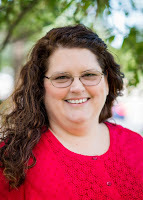Should I Experiment with Writing Other Genres?

One of the things we're told as aspiring writers is to "Stick to one genre. Find one that works and don't hop around." And as published authors, we're told to "Create your brand, and don't stray from it. Consistently meet reader expectations to grow your career."
For super-creative people like writers, who love to explore the possibilities on a daily basis, this can be frustrating. But, as with most general rules, accepting is easier when we understand the 'why' behind that dictate. (And also how and when we can and should break that 'rule.')

From what I have gathered from my agent friends, the reasoning behind agents preferring an author find a genre and stick to it is this: When an agent is trying to sell an author's work to a publisher, they are also trying to sell the author. They want to create a situation where a long-term career with a publisher is possible. If the author has one historical romance, one contemporary romantic comedy, one self-help book, and one memoir they'd like to shop, this gives the impression that the author is a jack-of-all-trades-master-of-none. That their identity as a writer is all over the shop. "I can write anything! I love writing everything" isn't a brand.
From the publisher's perspective, they're usually looking to fill a 'hole' in their stable of authors. If they need more cozy mysteries, they're looking for a writer who will write cozy mysteries for awhile. If they're in the market for espionage thrillers, they are seeking a thriller-writer who will stay the course and become known for writing thrillers. They are not interested in investing thousands of dollars on an author, only to have that author swap horses mid-stream and say they don't want to continue providing content for the reader-base the publisher has gathered.
This might not be what an aspiring writer wants to hear, but it's how things are in this business, so learning it now is less painful than learning it later when you're faced with rejection after rejection and don't know why.
All that being said, there are times when trying different genres makes sense.
If you're not yet published, you can experiment a bit to find your writing voice and what genre fits it best. This needs to take place before you EVER query an agent. I'll say that again. Experiment with different genres before you query an agent. Try writing in the genre you most like to read. Try writing something wildly different from your usual taste. Write in first person. Write in third person. Try writing a YA. You'll know quickly where your heart, talent, and most importantly, your writing voice lies.
If you're published, the stakes for getting this right are higher. You might have a variety of reasons for changing genres. You might have hit on a great story idea that is outside your genre, and you're eager to try it. By all means, give it a whirl (with a couple of caveats that I'll mention later.) Or, you might be a published author who has run into a dead end with your current publisher, genre, sales, etc. It's time for a change and a re-inventing of yourself. You might have a sudden opportunity presented by your publisher or offered by your agent that you would like to try. All valid reasons to consider changing genres.
 Should I stay in my lane or try a new direction?
Should I stay in my lane or try a new direction?But how do you go about it? You've spent a long time building your readership. Readers expect certain things from you, and if you don't deliver those things...the outrage can be huge. (Think of when John Grisham wrote The Painted House. The tens of thousands of fans of his legal thrillers bought the book expecting one thing and got something totally different. I don't think Grisham has quite recovered yet.)
But changing genres is sometimes a viable option, and it can be done, even by wildly popular authors with a consistent brand and following. Before you take the leap though, consider these things:
1. Think long and hard, not just about yourself, but about your publisher and your readers. If you jump too far afield too quickly, you risk blowing up all that you've worked so hard to accomplish. If you're considering a radical shift, give it a lot of thought, talk to your agent who will have their perspective, and have a sound plan and reason for the change.
2. Consider only changing one or at the most two things at a time. I'll use myself as an example. For thirty or so novels and novellas, I wrote stories set in the American West. I wrote in the time period between 1860 and 1918. Then my publisher asked if I would be interested in writing a novella set during the Regency period. England, sometime between 1811 and 1820.
I would still be writing historical fiction. It woulds till be romance, but it would have a different setting/time period. Reader expectations from an Erica Vetsch romance include:
a) Extensively researched historical settings
b) Swoon-worthy romance
c) A rich and varied vocabulary of period words
d) A smash-bang finish
A switch to writing a Regency romance meant I could still do the things readers were expecting, but with a fresh twist of a new locale and time period. I agreed to write the novella, and I had great fun! The story, Jamie Ever After, in the Regency Brides Collection was well-received.
3. Consider a pen name. If you're going to make a radical shift that is more than one or two degrees of separation from your well-established brand, consider using a pen name. This will avoid any confusion on the part of your readers about what to expect. Think of the shock for your reader if you're known for your humorous cowboy romances, and suddenly, you publish a serial killer psycho-thriller! Mary Connealy did just this a few years ago, and she was wise enough to use a pen name, Mary Nealy (Though you have to admit, that's still pretty close. :D ) Fans of Mary Connealy's romantic cowboy stories are not necessarily the fans of crime thrillers involving psychotic, deranged serial killers. ( I happen to be, but that says more about me than about Mary!)
Many authors use pen names when swapping genres or venturing out into a new genre. Probably the most famous is Nora Roberts, who, when she wanted to switch from contemporary romance to police procedural mysteries, chose the pen name J. D. Robb. Stephen King wrote under the name Richard Bachman when he wanted to pen something other than super-scary thrillers.
 Should I relax and keep doing what I'm doing
Should I relax and keep doing what I'm doingor should I launch into a new direction?
If you find yourself needing to change genres, rather than just wanting to change, don't despair. I've a friend who found door after door closing to her after having published many titles in the historical romance genre. But a door opened to write both contemporary romance and contemporary mystery. She said she'd try it and BAM, contracts galore.
For myself, I found that I had gone a bit stale on writing American historical romance. The Regency novella had sparked a renewed interest in research and given me a new historical era to immerse myself in. Since I had no pending contracts to fulfill, I decided to please myself and pull together a proposal for a Regency series. My agent was excited about the prospect, and she found a home for that proposal more quickly than I imagined.
That series will release in 2020, and I hope that I will bring along my current reader base for the ride, as well as find some new readers along the way. It still has those hallmarks of my writing I listed above, but it's got a touch of mystery/suspense to it as well!


Best-selling, award-winning author Erica Vetsch loves Jesus, history, romance, and sports. She’s a transplanted Kansan now living in Minnesota, and she is married to her total opposite and soul mate! When she’s not writing fiction, she’s planning her next trip to a history museum and cheering on her Kansas Jayhawks and New Zealand All Blacks. You can connect with her at her website, www.ericavetsch.com where you can read about her books and sign up for her newsletter, and you can find her online at https://www.facebook.com/EricaVetschAuthor/ where she spends way too much time!
Published on November 24, 2019 21:00
No comments have been added yet.



